First-generation farmers in Roosevelt celebrate tenth season of sustainable agriculture

At first, when driving along the winding country roads of Roosevelt, you might pass right by Mendies Farm without noticing it. Vegetable fields and greenhouses are tucked away behind a little red hut and roadside beds of dahlias and zinnias.
For those who do pull over, a 30-acre haven of sustainable, innovative farming awaits them. Loyal customers have formed what can only be described as a fan club for local agriculture and farm owners Heidi and Lawrence Mendies.
The Mendies, both first-generation farmers, have been running their farm for a decade now with the help of volunteers. Lawrence’s interest in local flora began years earlier. When he finished his stint in the U.S. Army, he started a landscaping business planting native trees in clients’ yards to stimulate local wildlife.
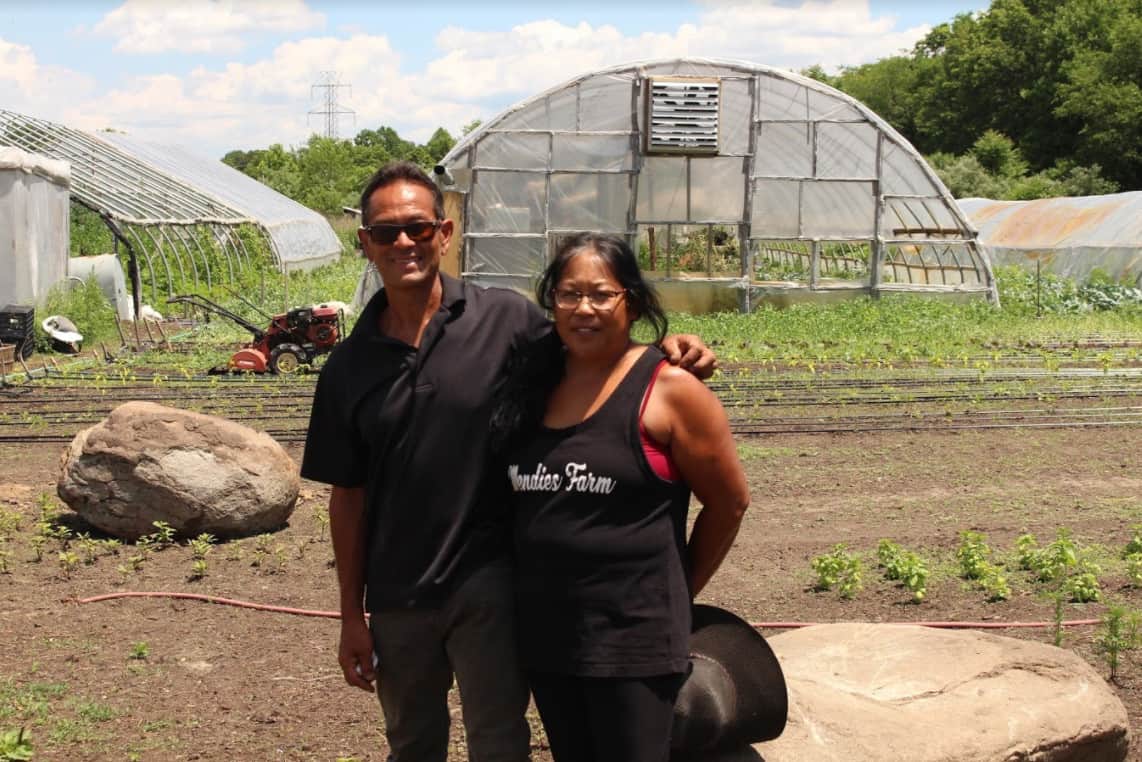
After the couple saved up enough money, they put a down payment on the land that is now Mendies Farm. Lawrence began by planting trees for his wildlife designs, then added a few tomato plants here and there, and eventually took the leap into full-time farming.
“I didn’t have the slightest clue about farming when I started,” he said. But Lawrence has always seen his lack of generational knowledge as, in many ways, an advantage — he is free to blaze a new path in sustainable agriculture, he said.
The Mendies have been testing different growing techniques and building new systems for the past decade, and hope to inspire other first-generation farmers to do the same. The pair posts videos and photos documenting their journey on the farm’s Facebook page in order to share their knowledge with aspiring farmers and curious customers.
Lawrence’s drive to innovate comes from a combination of his unwavering commitment to sustainability, his passion for experimentation, and from financial necessity. “You have to be creative,” he said. “It’s your survival.” His most recent project involves a biomass burner he bought on eBay and a greenhouse full of homemade hydroponic constructions.
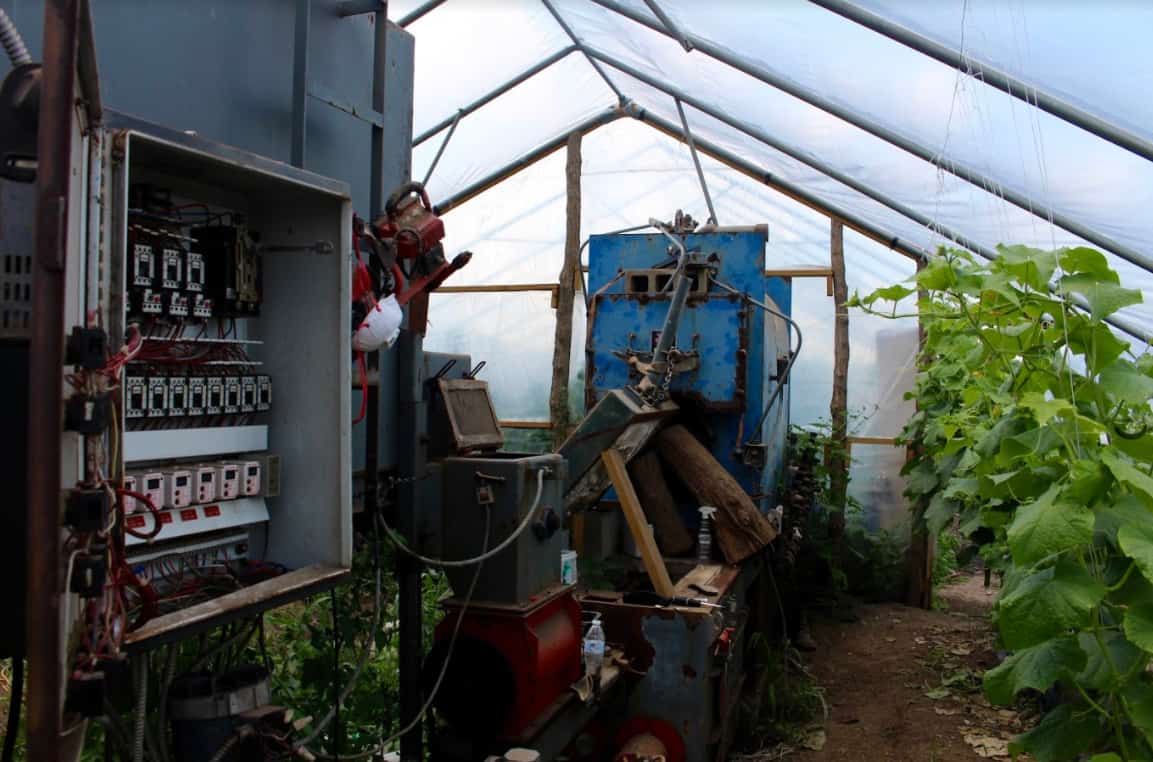
Mendies Farm grows crops all year long. Heated greenhouses allow Lawrence to keep the ground from freezing through the winter months, but traditional heating systems that rely on fossil fuels are both environmentally harmful and expensive, he said.
So, Lawrence made an agreement with East Windsor Township to receive all their spare wood chips for free and found a biomass burner online for a fraction of the original price, which he then refurbished. He believes the project would have cost over $250,000 had he bought everything brand-new.

Now, equipped with a greenhouse that requires minimal input and energy to heat, Lawrence plans to grow golden berries and everbearing strawberries year-round, in addition to cold crops like broccoli and cauliflower. He has built several gravity-fed hydroponic towers of strawberries and is working on making more.
Another perk of the heated greenhouse? “My cat and I can hang out here all winter long,” Lawrence said.
To further promote sustainability, his number one priority, Lawrence uses no-till, no-dig cultivation, makes his own compost, and harvests wood from his own forest for construction.
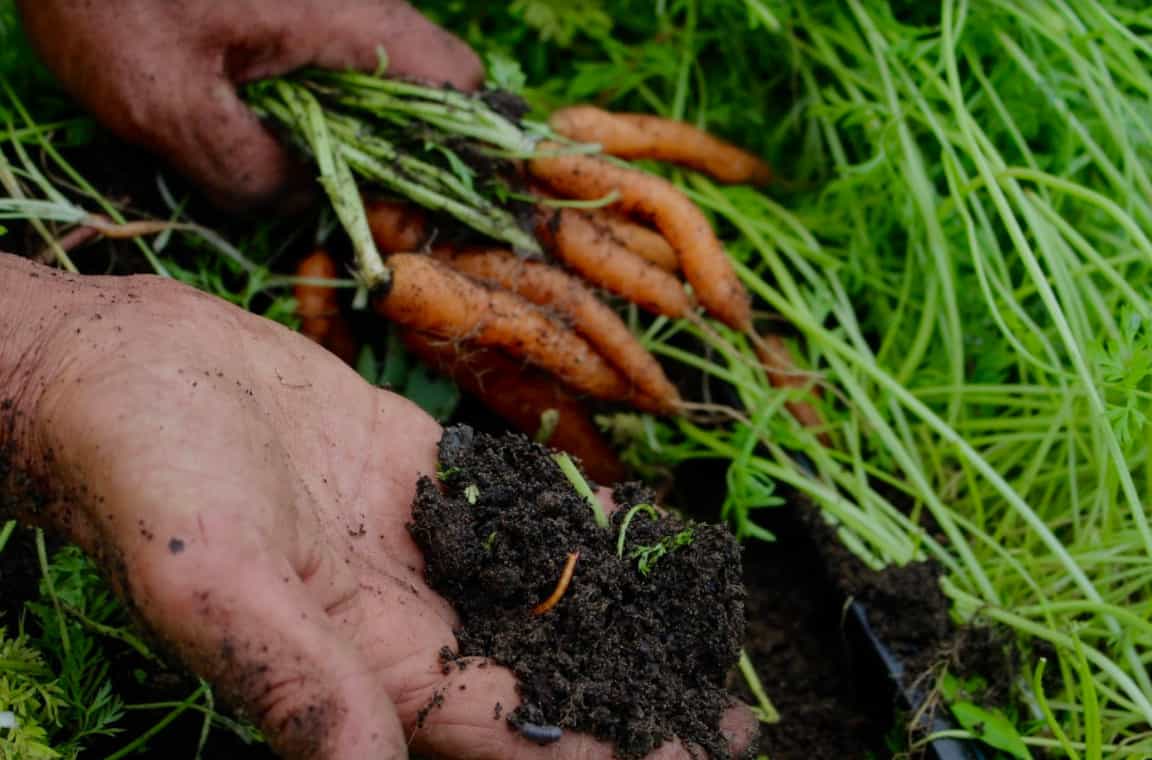
Although Heidi and Lawrence grow everything naturally, the couple chooses not to certify their crops as USDA organic. Lawrence believes their food and growing practices supersede the USDA requirements. “We use nothing. We don’t even use certified organic sprays,” he said.
Instead, Lawrence invites volunteers and work-share participants who receive farm shares in return for weekly volunteer hours to learn about their food and get to know their farmers directly.
“What better way to certify your food than to get involved in growing it?” he asked. “That’s, to me, better than any certification.”
USDA certification is also expensive. The minimum investment to start the certification process is $5,000, so being uncertified allows Lawrence to redirect that money towards reducing the price of his Community Supported Agriculture CSA) membership.
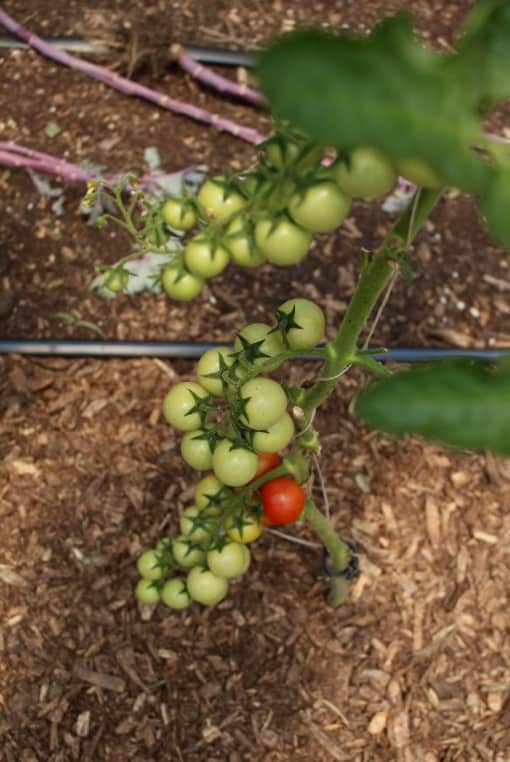
The Mendies are always looking for ways to save money. This is the reality of being a first-generation farmer, Lawrence said. His greatest advice to other farmers is to never let anything go to waste in order to maximize both frugality and sustainability.
When Lawrence was initially experimenting with wood chips, he tried to burn them to create heat and almost burned the whole greenhouse down, he said. Instead of throwing out the charred rests, he cut the greenhouse in half and used the salvaged plastic to line several water reservoirs and pots for growing cucumbers in a hydroponic dutch bucket system. He also repurposed an old irrigation pipe by setting it on a timer to water the cucumbers automatically.
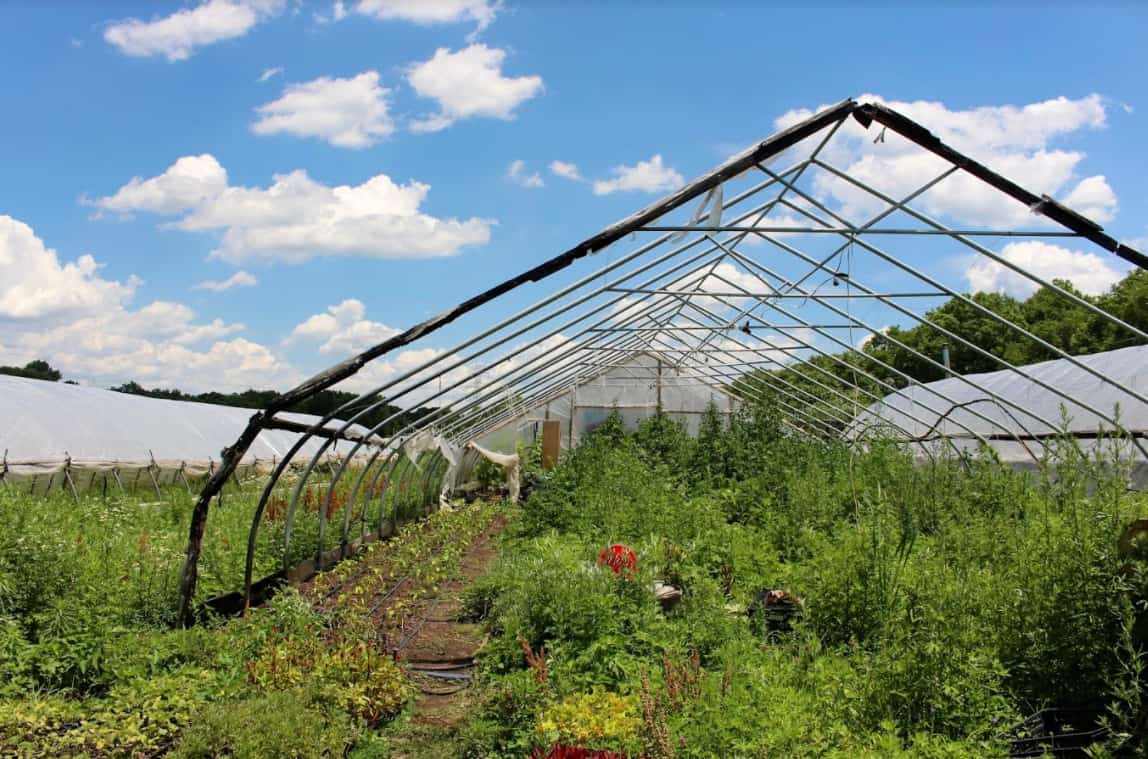
Lawrence credits his members and volunteers for much of his success. The farm has relied on volunteers since its very first year in operation, Lawrence said, although the program is on hold during the pandemic as a health and safety precaution.
He has always offered a year-round CSA, with a 20-week summer season from June to mid-October, followed by a winter season that starts on Nov. 1. Participants come from all over New Jersey, and some even come from as far as Staten Island. “My CSA members are my lifeline,” he said.
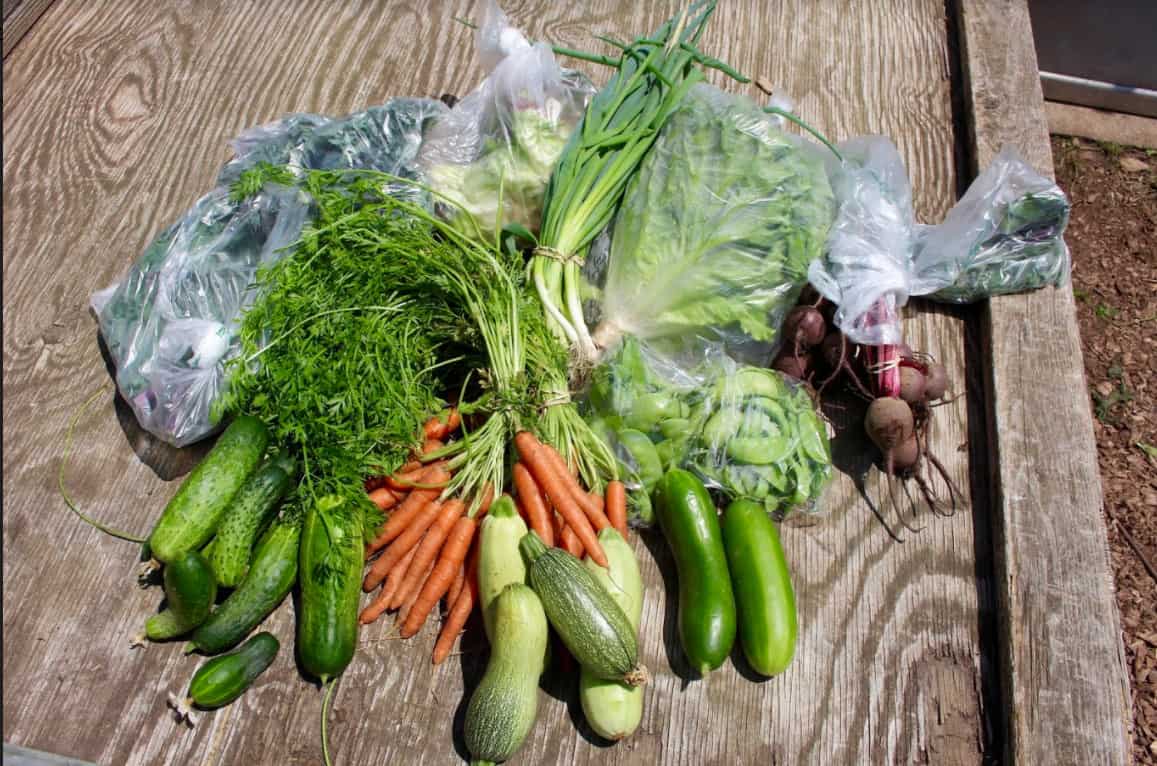
This season, he and Heidi have been pre-packing CSA bags labeled with customers’ names, then stashing them in a walk-in cooler that Lawrence found abandoned in the woods and refurbished. Members enter the walk-in one at a time, and masks are required.
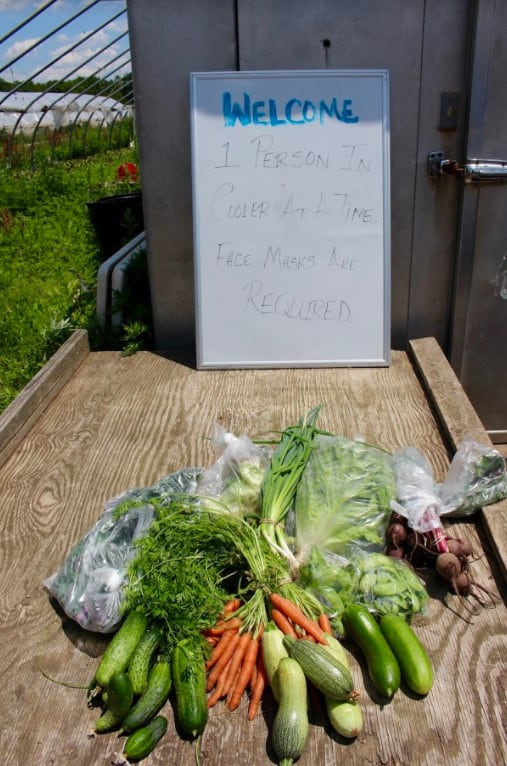
Although they do not officially oversee the pick-ups, Lawrence and Heidi are often working near the cooler at CSA pick-up time and greet members by name as they arrive. Lawrence explains each piece of produce while Heidi checks in on how everyone is doing. Customers shower the pair with praise. Some have been CSA members since the Mendies’ first season.
Lawrence and Heidi love their work and plan to keep at it for years to come, Lawrence said, but he knows that one day he will be passing his farm off to a successor. His goal is to perfect all of his systems over the next five years or so, in the hopes that they can be of use to a future generation of farmers.

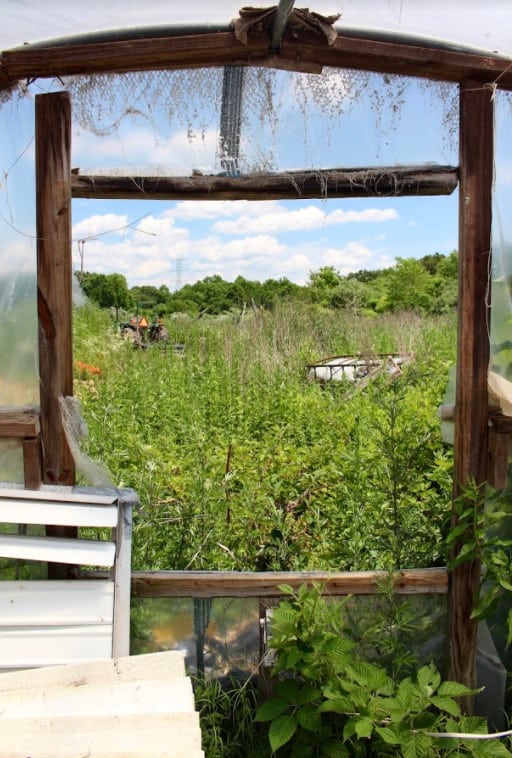
Nora Peachin was previously a reporting intern at the Addison County Independent, a local newspaper in Middlebury, Vermont. A Princeton native, she is a rising senior at Middlebury College, where she studies history and global health. She works as the senior local editor of the student newspaper and manages the student-run restaurant. When she's not writing, Nora enjoys cooking, hiking, and film photography.
